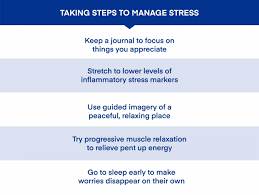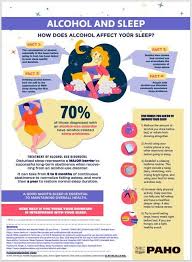Insomnia Can Be Cured
Insomnia, the inability to fall asleep or stay asleep, is a common sleep disorder that affects millions of people worldwide. While it can be frustrating and impact daily life, the good news is that insomnia can be cured with the right approach and treatment.
Understanding Insomnia
Insomnia can be caused by various factors, including stress, anxiety, poor sleep habits, medical conditions, or lifestyle choices. It is essential to identify the underlying cause of insomnia to effectively treat it.
Treatment Options
There are several treatment options available to cure insomnia:
- Sleep Hygiene: Establishing a regular sleep schedule, creating a relaxing bedtime routine, and optimizing your sleep environment can improve your sleep quality.
- Cognitive Behavioral Therapy for Insomnia (CBT-I): CBT-I is a structured program that helps you identify and change negative thoughts and behaviors that contribute to insomnia.
- Medication: In some cases, doctors may prescribe medication to help you fall asleep or stay asleep. It is essential to use medication under medical supervision.
- Hypnotherapy: Hypnotherapy can be effective in treating insomnia by addressing subconscious issues that may be contributing to sleep disturbances.
The Road to Recovery
Curing insomnia requires patience and dedication. By adopting healthy sleep habits, seeking professional help if needed, and addressing any underlying issues contributing to your insomnia, you can overcome this sleep disorder and enjoy restful nights once again.
Conclusion
While insomnia can be challenging to deal with, it is not a permanent condition. With the right approach and treatment strategies tailored to your specific needs, you can successfully cure insomnia and reclaim your ability to get a good night’s sleep.
9 Benefits of Curing Insomnia: Unlocking Better Health and Well-Being
- Improved overall health and well-being
- Enhanced mood and mental clarity
- Increased energy levels throughout the day
- Better concentration and cognitive function
- Reduced risk of chronic health conditions associated with poor sleep
- Enhanced productivity at work or school
- Improved quality of life and relationships
- Decreased reliance on sleep aids or medications
- Restored natural sleep patterns for long-term benefits
Challenges in Overcoming Insomnia: Understanding the Potential Drawbacks of Treatment
- Success may vary
- Relapse risk
- Time-consuming process
- Dependency on medication
- Cost of treatment
- Underlying health issues
Improved overall health and well-being
One significant pro of curing insomnia is the improvement in overall health and well-being. When insomnia is effectively treated, individuals experience better physical health, mental clarity, and emotional stability. Adequate sleep plays a crucial role in supporting the body’s immune system, enhancing cognitive function, and promoting emotional resilience. By addressing and overcoming insomnia, individuals can enjoy a higher quality of life with increased energy levels, improved mood, and better overall health outcomes.
Enhanced mood and mental clarity
By successfully curing insomnia, individuals can experience a significant improvement in their mood and mental clarity. Adequate and restful sleep plays a crucial role in regulating emotions and cognitive function. With better sleep quality, individuals are more likely to feel happier, more balanced, and mentally sharp throughout the day. Enhanced mood and mental clarity resulting from overcoming insomnia can lead to increased productivity, better decision-making, and an overall improved quality of life.
Increased energy levels throughout the day
One significant benefit of curing insomnia is the potential for increased energy levels throughout the day. By addressing and resolving sleep disturbances, individuals can experience improved restorative sleep, leading to enhanced physical and mental vitality. With better quality sleep, the body and mind can recharge effectively, resulting in heightened energy levels, improved focus, and increased productivity during waking hours. This positive impact on energy levels underscores the importance of treating insomnia to support overall well-being and daily functioning.
Better concentration and cognitive function
By effectively addressing and curing insomnia, individuals can experience a significant improvement in their concentration and cognitive function. Quality sleep is essential for optimal brain function, memory consolidation, and overall mental performance. When insomnia is treated successfully, individuals are better able to focus, retain information, make decisions, and solve problems efficiently. Improved sleep quality leads to enhanced cognitive abilities, ultimately boosting productivity and overall well-being.
Reduced risk of chronic health conditions associated with poor sleep
One significant benefit of curing insomnia is the reduced risk of chronic health conditions associated with poor sleep. Chronic sleep deprivation can lead to serious health issues such as heart disease, diabetes, obesity, and mental health disorders. By effectively treating insomnia and improving sleep quality, individuals can significantly lower their risk of developing these conditions and promote overall well-being. Prioritizing good sleep hygiene and seeking appropriate treatment for insomnia can have a positive impact on long-term health outcomes.
Enhanced productivity at work or school
Curing insomnia can lead to enhanced productivity at work or school. When you consistently get a good night’s sleep, you are more alert, focused, and energized during the day. This increased cognitive function allows you to perform tasks more efficiently, make better decisions, and retain information effectively. By addressing and overcoming insomnia, you can unlock your full potential and achieve higher levels of productivity in your professional endeavors or academic pursuits.
Improved quality of life and relationships
By successfully curing insomnia, individuals can experience a significant improvement in their quality of life and relationships. With better sleep, they are more likely to feel refreshed, energized, and mentally sharp throughout the day. This can lead to increased productivity, better mood regulation, and enhanced overall well-being. Additionally, improved sleep can positively impact relationships by reducing irritability and enhancing communication skills, fostering stronger connections with loved ones and colleagues alike.
Decreased reliance on sleep aids or medications
One significant advantage of curing insomnia is the decreased reliance on sleep aids or medications. By addressing the root causes of sleep disturbances and implementing effective treatment strategies, individuals can reduce or eliminate the need for medication to help them sleep. This not only promotes a more natural and sustainable approach to improving sleep quality but also reduces the potential risks and side effects associated with long-term use of sleep aids. Ultimately, overcoming insomnia through non-pharmacological methods can lead to a healthier and more balanced approach to achieving restful and rejuvenating sleep.
Restored natural sleep patterns for long-term benefits
Restoring natural sleep patterns through the successful treatment of insomnia offers long-term benefits that extend beyond just getting a good night’s rest. By addressing and overcoming insomnia, individuals can experience improved overall health, enhanced cognitive function, better mood regulation, and increased energy levels throughout the day. Restoring natural sleep patterns not only promotes physical well-being but also supports mental and emotional resilience, leading to a higher quality of life and greater productivity in daily activities. Embracing healthy sleep habits and seeking appropriate treatment for insomnia can pave the way for sustained wellness and vitality in the long run.
Success may vary
Success in curing insomnia may vary among individuals, as not everyone may experience a complete recovery despite undergoing treatment. Factors such as the underlying causes of insomnia, individual differences in response to treatment, and adherence to recommended strategies can influence the outcomes. While some individuals may achieve significant improvement or even complete resolution of their insomnia symptoms, others may find that managing and reducing the impact of insomnia is a more realistic goal. It is important for individuals with insomnia to work closely with healthcare professionals to explore different treatment options and develop personalized strategies that can help improve sleep quality and overall well-being, even if a full cure may not be guaranteed for everyone.
Relapse risk
One significant con of curing insomnia is the risk of relapse. Despite successful treatment and improvement in symptoms, there is a possibility that insomnia may resurface at a later time. Factors such as stress, lifestyle changes, or underlying health conditions can trigger a relapse, leading to the return of sleep disturbances. It is essential for individuals who have experienced insomnia to remain vigilant and continue practicing healthy sleep habits even after initial treatment to reduce the risk of relapse and maintain long-term sleep wellness.
Time-consuming process
Curing insomnia can be a time-consuming process that demands dedication and consistency in implementing treatment strategies. It is essential to understand that overcoming insomnia is not an overnight fix but rather a journey that requires patience and commitment. Developing healthy sleep habits, undergoing therapy, and making lifestyle changes all take time to yield results. However, by staying persistent and following through with the recommended treatments, individuals can gradually work towards a restful night’s sleep and ultimately find relief from the challenges of insomnia.
Dependency on medication
Dependency on medication is a significant con of insomnia treatment as some individuals may rely on sleep medications to manage their sleep disorder. While these medications can provide temporary relief, long-term use can lead to dependency and potential side effects. Individuals may develop a tolerance to the medication, requiring higher doses for the same effect, which can increase the risk of adverse reactions. Moreover, abrupt discontinuation of sleep medications can result in withdrawal symptoms and worsen insomnia. It is essential for individuals to be cautious about the potential risks of dependency on medication and explore alternative treatment options to address insomnia effectively.
Cost of treatment
The cost of treatment is a significant con when it comes to curing insomnia. Seeking professional help or therapy to address this sleep disorder can result in financial expenses that may not be feasible for everyone. The affordability of treatment options can be a barrier for individuals seeking effective solutions for their insomnia, potentially limiting access to necessary care and interventions. It is essential to explore alternative resources and support systems to mitigate the financial burden associated with insomnia treatment and ensure that individuals have access to the help they need.
Underlying health issues
Insomnia can present a con in terms of underlying health issues, as it may serve as a symptom of more serious medical conditions that extend beyond standard treatments. In some cases, persistent sleep disturbances could be an indication of underlying health issues such as depression, anxiety disorders, hormonal imbalances, or neurological conditions. It is crucial to address these potential root causes with the help of healthcare professionals to ensure comprehensive treatment and management of both the insomnia and the associated health concerns. Seeking medical attention for any underlying health issues is essential in effectively addressing and potentially curing insomnia in these scenarios.


